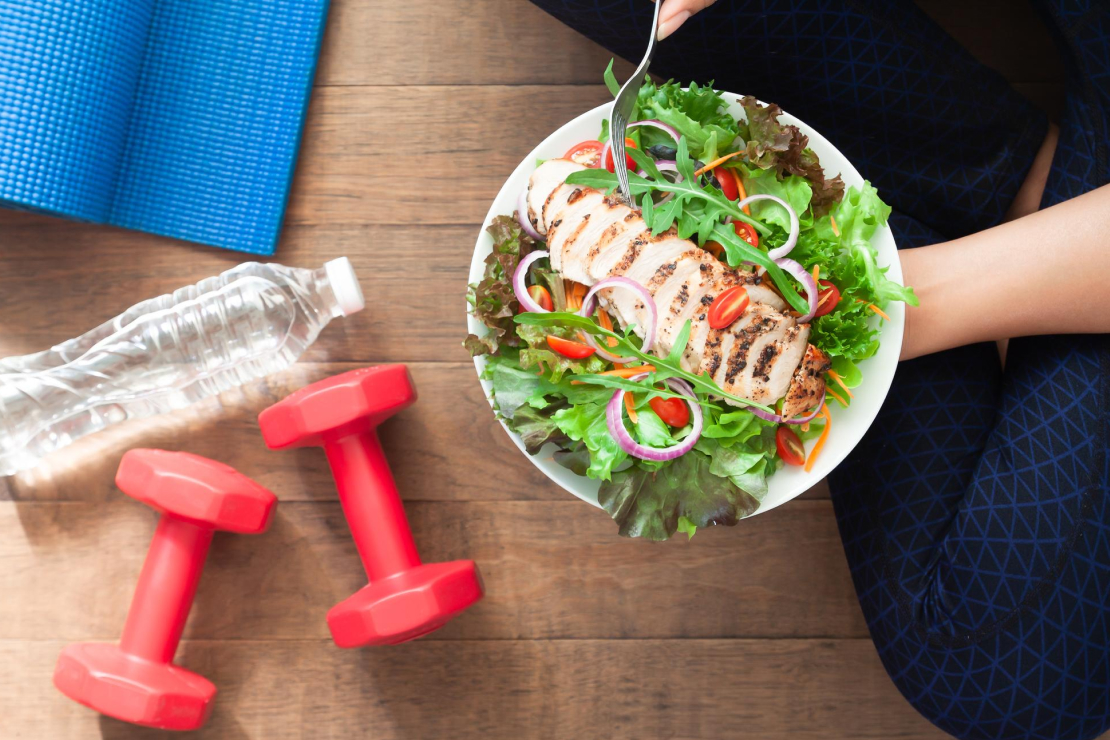Should You Eat Before or After a Workout for Fat Loss?
Discover the optimal meal timing for fat loss workouts. Learn when to eat, what to eat, and how to maximize your results with expert nutrition strategies for both pre and post-workout meals.

Table of Content
Understanding Workout Nutrition for Fat Loss
The timing of your meals around workouts can significantly impact your fat loss results. While the total daily caloric intake remains the most crucial factor, strategic meal timing can enhance fat burning, improve performance, and accelerate recovery. This comprehensive guide will help you understand when and what to eat to maximize your fat loss efforts.
The Science Behind Workout Nutrition
Your body uses different fuel sources during exercise, primarily carbohydrates and fats. Understanding how these energy systems work can help you make better decisions about meal timing:
| Energy System | Primary Fuel | Duration | Best For |
|---|---|---|---|
| Phosphagen | ATP-PC | 0-10 seconds | Explosive movements |
| Glycolytic | Carbohydrates | 10 seconds - 2 minutes | High-intensity training |
| Oxidative | Fats and Carbs | 2+ minutes | Endurance activities |
Pre-Workout Nutrition: The Pros and Cons
Benefits of Eating Before Exercise
- Energy Availability
Immediate fuel for high-intensity performancePrevents mid-workout fatigueSupports longer training sessions
- Blood Sugar Control
Stabilizes glucose levels during exerciseReduces risk of hypoglycemiaMaintains mental focus
- Performance Enhancement
Improves strength and enduranceReduces perceived exertionSupports muscle preservation
Best Pre-Workout Foods for Fat Burning
| Food | Timing | Benefits | Portion Size |
|---|---|---|---|
| Banana with Almond Butter | 30-60 mins before | Quick energy, healthy fats | 1 medium banana, 1 tbsp butter |
| Greek Yogurt with Berries | 60-90 mins before | Protein, slow-release carbs | 1 cup yogurt, ½ cup berries |
| Oatmeal with Protein | 2 hours before | Sustained energy, satiety | ½ cup oats, 1 scoop protein |
Post-Workout Nutrition: Maximizing Recovery
The Recovery Window
The post-workout period is crucial for recovery and adaptation. Research shows that consuming the right nutrients within 30-60 minutes after exercise can significantly impact your results:
- Muscle Recovery
Enhanced protein synthesis up to 24 hoursReduced muscle breakdownImproved glycogen replenishment
- Metabolic Benefits
Increased fat oxidation for 12-24 hoursEnhanced insulin sensitivityImproved nutrient partitioning
Optimal Post-Workout Meals
| Workout Time | Meal Suggestion | Key Nutrients | Timing |
|---|---|---|---|
| Morning | Protein smoothie with fruits | 20-30g protein, 30-40g carbs | Within 30 mins |
| Afternoon | Chicken with sweet potato | 25-35g protein, 40-50g carbs | Within 1 hour |
| Evening | Fish with quinoa | 20-30g protein, 30-40g carbs | Within 1 hour |
Gender-Specific Considerations
Female-Specific Nutrition Timing
Women's nutritional needs around workouts differ significantly from men's due to hormonal fluctuations throughout the menstrual cycle. Understanding these variations can help optimize workout performance and fat loss results. Research shows that women may need to adjust their meal timing and composition based on their hormonal status, as this affects both energy utilization and recovery patterns.
- Hormonal Considerations
Estrogen affects fat utilization and storage patternsMenstrual cycle phases alter metabolism by 5-10%Different protein requirements (1.6-1.8g per kg body weight)Insulin sensitivity changes throughout cycleHigher iron needs due to monthly blood loss
- Timing Strategies
Higher protein needs post-workout (25-35g)Carb timing based on cycle phase (higher during luteal phase)Iron-rich foods for energy and recoveryIncreased hydration needs during certain phasesStrategic carb timing for hormonal balance
- Cycle-Based Adjustments
Follicular phase: Focus on protein timingOvulation: Peak performance windowLuteal phase: Increased carb needsMenstruation: Enhanced recovery focus
Male-Specific Considerations
Men's hormonal profile, particularly higher testosterone levels, influences how their bodies respond to workout nutrition timing. Understanding these differences can help optimize meal timing for maximum muscle preservation and fat loss.
- Hormonal Factors
Testosterone peaks in morning hoursHigher protein synthesis capacityDifferent nutrient partitioningEnhanced muscle glycogen storage
- Nutritional Timing
Larger post-workout protein windowsHigher overall caloric needsGreater carb tolerance post-workoutExtended fasting potential
Optimal Timing Guidelines
Fasted vs. Fed Training
The decision between fasted and fed training can significantly impact your fat loss results. Recent research has shown that both approaches can be effective when properly implemented, but each has distinct advantages and considerations based on your goals, training type, and individual response.
| Training State | Best For | Considerations | Timing |
|---|---|---|---|
| Fasted | Morning cardio, fat loss focus | May reduce performance | 4-6 hours after last meal |
| Fed | High-intensity training | Better performance | 2-3 hours after meal |
Time-of-Day Considerations
- Morning Workouts
Higher fat oxidation potentialOptimal hormonal environmentBetter adherence ratesMay require pre-workout fuelShorter warm-up needs
- Afternoon Training
Peak strength and power outputBetter nutrient availabilityOptimal body temperatureEnhanced muscle functionBalanced energy levels
- Evening Exercise
Higher anaerobic capacityReduced injury riskBetter flexibilityMay affect sleep qualityRequires careful meal planning
Activity-Specific Timing
- Strength Training
Pre-workout protein within 2 hoursCarbs based on session intensityPost-workout window crucialHydration timing important
- Cardio Sessions
Fasted state more beneficialLighter pre-workout mealsExtended fat-burning windowRecovery nutrition less critical
Special Considerations
Night Training Nutrition
Evening workouts present unique challenges for nutrition timing, particularly regarding sleep quality and recovery. The key is balancing post-workout recovery needs with optimal sleep preparation. Research indicates that proper nutrient timing can help mitigate potential sleep disruptions while supporting recovery and fat loss goals.
- Pre-Workout Evening Nutrition
Light meal 2-3 hours before trainingFocus on easily digestible foodsModerate protein and carbsAvoid high-fat mealsConsider caffeine timing
- Post-Workout Night Recovery
Protein-focused recovery mealLimited carbohydratesConsider casein proteinTiming: 1-2 hours before bedFocus on sleep-promoting foods
Intermittent Fasting Considerations
Combining intermittent fasting with workout nutrition requires careful planning to maintain both fat loss benefits and performance. Understanding how to structure your eating window around workouts can help optimize results while adhering to fasting protocols.
- Fasting Windows
16/8 protocol most commonTraining near eating windowModified fasts for performanceStrategic refeed timing
- Performance Optimization
BCAAs during fasted trainingElectrolyte managementBreaking fast guidelinesRecovery meal planning
Medical and Health Conditions
Certain health conditions require special attention to workout nutrition timing. Understanding these considerations can help maintain safety while optimizing results.
- Diabetes Management
Blood sugar monitoringInsulin timing coordinationHypoglycemia preventionCarb timing strategies
- Digestive Issues
Low FODMAP considerationsTiming for medicationsMeal spacing requirementsSymptom management
- Heart Conditions
Sodium and fluid balanceMedication interactionsBlood pressure managementExercise intensity timing
Sample Meal Plans
Pre-Workout Options
- Quick Energy (30 mins before)
Banana with 1 tbsp almond butterApple with 1 oz almondsRice cake with honey
- Sustained Energy (2 hours before)
Oatmeal with protein powderTurkey and avocado wrapQuinoa bowl with chicken
Post-Workout Options
- Quick Recovery
Protein smoothie with berriesGreek yogurt with fruitProtein bar with banana
- Complete Meals
Grilled chicken with sweet potatoSalmon with quinoa and vegetablesTurkey and rice bowl
Frequently Asked Questions
Is it OK to work out on an empty stomach?
What should I eat before an early morning workout?
- Banana with a small amount of nut butter
- Half a protein bar
- Small handful of almonds
- Rice cake with honey
Should I eat protein or carbs post-workout for fat loss?
- 20-30g protein within 30 minutes
- Moderate carbs based on workout intensity
- Focus on lean protein sources
- Include some healthy fats
Is it better to skip dinner if I want to lose weight?
- Total daily calorie intake
- Meal timing around workouts
- Quality of food choices
- Sustainable eating patterns
Can I eat after a night workout without gaining weight?
- Protein-rich, moderate-carb meals
- Staying within daily calorie goals
- Light, easily digestible options
- Proper portion control
The Bottom Line
While meal timing around workouts can optimize your fat loss results, it's important to remember that total daily calorie intake and consistency with your nutrition plan are the most crucial factors. Use these guidelines to create a sustainable approach that works with your schedule and preferences, and adjust based on your body's response and energy needs.
"The best meal timing strategy is one you can consistently follow. Focus on quality nutrition and finding a schedule that supports your lifestyle and training goals."
Start Your Health Journey Today
Download Macro Tracking AI and take control of your nutrition with the power of artificial intelligence.
Download on App Store

